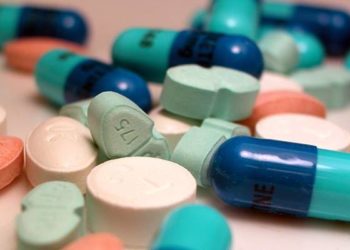Laundry detergent pods a poisoning risk to young children
1. Since the release of laundry detergent pods to the U.S. market in March 2012, there have been 17 230 calls to Poison Control Centers regarding unintended exposure and 1 confirmed death.
2. The major route of exposure to detergent pods was ingestion, and the major clinical outcomes were vomiting, coughing/choking, and ocular irritation.
Evidence Rating Level: 1 (Excellent)
Study Rundown: Since their release to the U.S. market in March 2012, laundry detergent pods have taken up an increasing proportion of the detergent market. However, their candy-like appearance and lack of childproof packaging have led to concerns about product safety in households with young children. Data from the National Poison Data System (NPDS) was used to analyze calls to national Poison Control Centers regarding exposures to detergent pods in children under age 6. The vast majority of exposures were via ingestion, and 1- and 2-year old children represented a more than half of the exposed population. The most common clinical effect of exposure was vomiting, followed by coughing/choking and ocular irritation. Although this study highlights the need to increase the safety of detergent pod packaging, it is limited by a potential underestimation of the true extent of pod exposure. Clinicians can educate parents about how exposure to household cleaning products, such as detergent pods, remains a major cause of poisoning among young children.
Click to read the study, published today in Pediatrics
Relevant Reading: Laundry detergent “pod” ingestions: a case series and discussion of recent literature
Study Author, Dr. Gary A. Smith, MD, DrPH, talks to 2 Minute Medicine: Center for Injury Research and Policy at Nationwide Children’s Hospital, The Ohio State University College of Medicine and Child Injury Prevention Alliance, Columbus, Ohio.
“In early 2012, laundry detergent pods became widely available as a new form of laundry detergent in the United States, and this study shows that they represent a serious poisoning hazard for young children. The study underscores the need for increased efforts to prevent exposure among young children to laundry detergent pods, which include improvements in product packaging and labeling, development of a national product safety standard, and public education. Physicians and future physicians can become involved to help implement these prevention strategies at local to national levels.”
In-Depth [retrospective cohort study]: This study analyzed laundry detergent pod exposure data among children under 6 from the NPDS, which aggregates calls received through the American Association of Poison Control Centers (AAPCC). Of the 17 230 calls regarding pod exposures, those among 1- and 2- year olds made up 33.3% and 31.5% of cases, respectively. The majority (79%) of exposures were via ingestion and 53.5% of exposures were managed at the site of ingestion, rather than at a healthcare facility. Thirty-five percent of exposed children were treated in a healthcare facility and 4.4% of exposed children were admitted to a hospital. Common clinical outcomes include vomiting (48% of exposed children), couching/choking (13.3%), and ocular irritation (10.9%). A small number of cases were associated with more severe symptoms, such as coma (30 patients), seizures (12), hematemesis (11), pulmonary edema (6), respiratory arrest (4), gastric burns (2), and death (1). Treatments included dilution/irrigation/wash (75.1% of cases) and ventilation and tracheal intubation (0.6%).
More from this author: Colleges can support students with chronic medical conditions, Active sexting among teens related to sexual activity, AAP policy update recommends first-line contraceptives, addresses specific populations, AAP continues to recommend fluoride for prevention of dental caries, Clinical efficacy of quadrivalent HPV vaccine persists after 8 years
Image: PD
©2014 2 Minute Medicine, Inc. All rights reserved. No works may be reproduced without expressed written consent from 2 Minute Medicine, Inc. No article should be construed as medical advice and is not intended as such by the authors, editors, staff or by 2 Minute Medicine, Inc.








